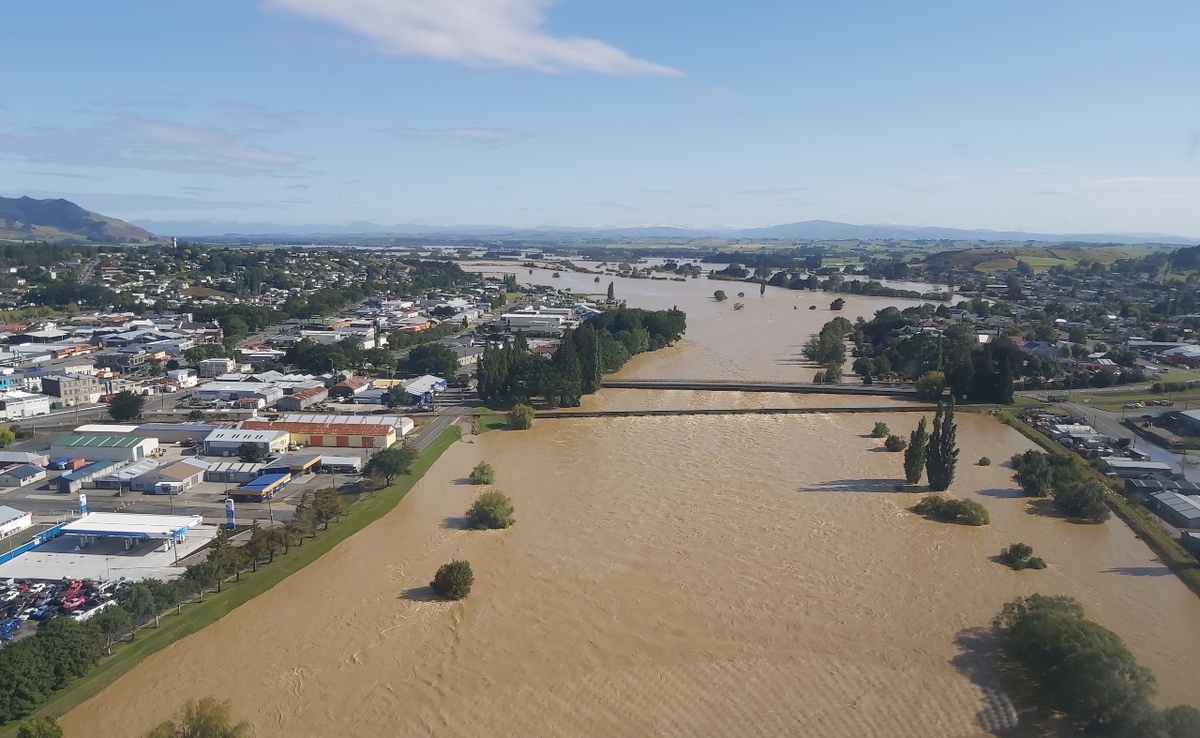Environment Southland to build financial reserves for future floods
Environment Southland
09 February 2021, 1:09 AM
 Gore's stop banks were challenged by the February 2020 floods. PHOTO: Supplied
Gore's stop banks were challenged by the February 2020 floods. PHOTO: SuppliedA year on from the record floods in February 2020, Environment Southland’s Organisational Performance and Audit Committee has received a report reviewing the $4.4 million costs incurred by the regional council during the emergency.
The floods were costly for the entire region, with Insurance Council of New Zealand statistics showing claims for the Southland region totalled almost $30 million, with the majority coming from commercial claims.
Environment Southland’s report looks into the regional council’s disaster reserves and insurance cover for Southland’s flood protection schemes.
Advertisement
Advertise on the Southland App
Environment Southland chairman Nicol Horrell said on Friday (February 5) the council’s reserves were essential to ensuring resilient communities.
He said the council needed to rebuild its reserves to prepare for similar natural disasters.
Currently, Environment Southland mitigates against the cost of natural disasters using a combination of infrastructure insurance, Government support and council disaster reserves.
“As climate change impacts continue to make their presence felt, it’s likely insurance will become increasingly difficult to secure. We won’t always be able to rely on it and it’s important the council plans to maintain an adequate level of reserves,” Cr Horrell said.
The total cost of the February 2020 floods to Environment Southland was approximately $4.4 million; $0.5m of which was met by reserves tagged for this purpose, $1.5 million was met by insurance, and $2.4 million was absorbed internally by reprioritising catchment work programmes.
Advertisement
Advertise on the Southland App
Mr Horrell said Environment Southland was focused on supporting communities to be more resilient in facing the threat of climate change.
To do that its flood protection assets needed to be insured and maintained so they could meet predicted sea level rise, he said.
“The council will review how we prepare for natural disasters, consider whether the current mix of reserves and insurance is the best option going forward, or if we need to transfer some of that risk, traditionally carried by insurance, to our own disaster reserves.
“The 2020 floods caused a region-wide state of emergency, threatened towns, and resulted in evacuations. They tested Southland stop banks to their limits and showed how essential they were. The investment in our stop bank infrastructure from 1978 is still delivering dividends. Without them the flood would have been a very different story.”
AG | TRADES & SUPPLIES

